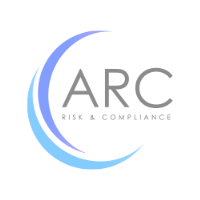This webinar will explain what money laundering is, various types of money laundering including structuring, micro-structuring and cuckoo smurfing. Attendees will learn how to identify the red flags of money laundering in an account within your institution.Red Flags of Money Laundering.
Objectives of the Presentation
What is money laundering
- History of money laundering
- Red flags of structuring
- Red flags of micro-structuring
- Red flags of cuckoo smurfing
- How can allowing money laundering affect me/my financial institution/USA?
- When do we tell the BSA officer, and what should we use to communicate?
- The customer told me that she is hiding money from the IRS, should I tell BSA?
- What are the Red Flags to Identity Theft?
- We did not book the mortgage loan so why should I tell BSA that the identification and TIN did not match?
Why Should you Attend
Money laundering is one of the primary concerns for any financial institution. The key to success is to know what to look for when reviewing accounts for money laundering. In order to identify possible money laundering in an account, it is first crucial to understand what money laundering is, various types of money laundering and how to spot the red flags of money laundering in an account. This webinar will teach how to spot money laundering from a branch perspective along with a compliance department perspective.
Who will Benefit
- Banking compliance Personnel
- Credit Union compliance Personnel
- Financial institution compliance Personnel
- Branch Management Staff
- Training Department/Program Professionals
- District Bank/Credit Union/Financial Institution Managers
- Teller Supervisors
- Compliance Managers
- Compliance Analyst/Investigators
Topic Background
The primary reason to avoid money laundering is it is against the law. Money laundering has existed since the early 1900’s and continues to this date. Most notably, money laundering became a spot lighted concern due to the war with Al Qaida and the war on terrorism. Because of the events of 9/11 it has become imperative that we as financial institutions understand what to look for when identifying money laundering. Money laundering is a major vehicle for various types of crimes worldwide, including terrorism. The most important thing to remember is, while money laundering is one of the oldest crimes in the modern era, it is still an evolving and growing financial crime.
To prevent a hefty fine along with the bad press, possible jail time and even the closure of your financial institution, it is necessary to know how to look for money laundering and what some of the major and most common red flags are for various types of money laundering. A number of financial institutions in recent years have paid considerable fines for conducting transactions that should have been recognized as money laundering. The negative publicity that has followed some of these large fines has caused various institutions to close or sell because of lack of trust by the public to do business with them.
To ensure you, your employees and your financial institution are not fined, jailed or forced to close, it is imperative that you understand what to look for when identifying possible money laundering in accounts within your institution.
Instructor Profile:
William Schlameuss has over 20 years’ experience in regulatory compliance, including BSA/AML/OFAC. He has worked with a wide range of US branches of major foreign banking organizations from all continents, both as chief compliance officer and compliance consultant. He has a prior background in IT as manager and implementer of core banking and payment systems, as well as compliance-related systems.
Mr. Schlameuss has extensive experience with State and Federal Banking regulators in examination preparation, assistance and response, including assistance in the remediation of written agreements for clients. As a project manager Mr. Schlameuss has led BSA/AML audits, BSA/OFAC Model Validations, remediation efforts of BSA audit issues , and BSA/OFAC look-backs for international banks, both self-imposed and directed by regulatory authorities. Model Validations included Prime, FCRM, Patriot Officer, Actimize, and eGIFTS.
He has conducted the Annual 3130 Supervisory Reviews for Broker-Dealers of the US branches of major FBOs. Mr. Schlameuss is also a member of the Association of International Bank Auditors and the International Bank Regulatory Compliance Committee.




